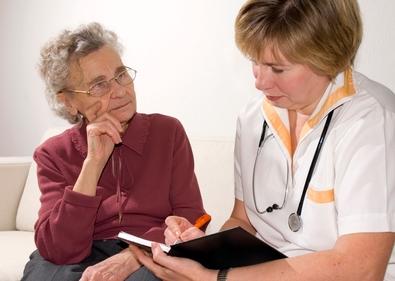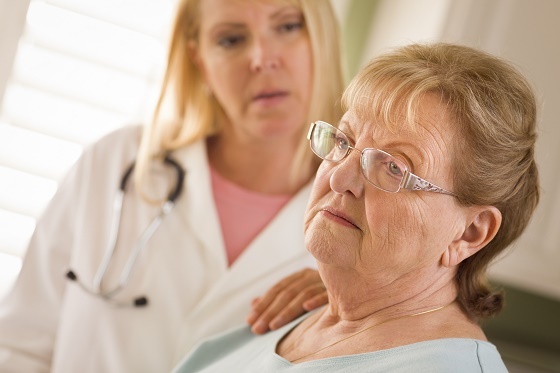
Even though breast cancer affects women of all ages, the disease is most common among older American women. Men can also get breast cancer, however they account for only a few of the reported cases.
Even though it is a common myth, breast cancer is not communicable. A person cannot get cancer by being exposed or interacting with someone with the disease. In addition, breast cancer is not caused by an injury to the breast. It is important to note that most women who develop breast cancer do not have any known risk factors or family history of the disease. A small percentage of breast cancer is believed to be inherited.
Risk factors of Breast Cancer
The risk factors vary for the disease. While breast cancer does affect younger women, most cases of breast cancer occurs in women between the ages of 45 to 85. The risk of breast cancer in a woman age 70 is far greater than a woman at age 30. The risk for breast cancer is believed to decrease after age 85. However, no matter the age, women should be acutely aware of the risk factors and warning signs.
Among being older, here are some of the other most common risk factors:
- Personal and Family History
- High Estrogen Levels
- Never Being Pregnant (or having child in your mid-30s or later)
- Early Menstruation (before 12)
- Breast Density
- Exposure to Radiation
- Obesity
- Drinking Alcohol
- Race (Caucasian women are at higher risk)
- Inherited gene changes
Today, there are many ways to treat breast cancer. However, all treatments work best when the disease is detected early. When caught in its earliest stage, the survival rate is extremely high.
Warning Signs of Breast Cancer
When it comes to your health, never ignore any warning signs. In the early stages, breast cancer may not present any symptoms at all. However, as the cancer grows, it can cause noticeable changes in the breast. Women should watch for the following in the breast or underarm area:
- A Lump or Thickening Skin
- A Change in Size or Shape, a Dimple or Puckering in the Skin, an Inward Turned Nipple
- Unusual Fluid from the Nipple (especially, if it is bloody)
For the best outcome, it is imperative for breast cancer to be diagnosed and treated as early as possible. Unfortunately, many women believe changes in the body are to be expected and simply due to aging. As a result, many illnesses, including breast cancer, go undiagnosed and, therefore, untreated. The simple rule: Do not ignore any symptoms because you believe they are insignificant or "normal" for your age. If you experience any of the symptoms, make an appointment with your doctor and start asking questions.
Self-examination
Women of all ages are encouraged to conduct a monthly self-examination. To ensure full coverage, it is important to inspect the breast physically and visually from different angles and positions. Therefore, it is recommended to inspect the breast in the shower, in front of a mirror and laying down. Many cases of diagnosed breast cancers are detected by women who feel a lump.
Check both breasts, feeling for lumps, thickening or hardened knots. Visually inspect the breasts for contour changes, swelling, dimpling of the skin or changes in the nipples. Set a reminder on your phone, mark your calendar or get a buddy and remind each other. To keep it simple, pick the same date each month, such as the first day or last day of the month.
Mammograms
An annual mammogram is recommended for adult women, especially as they get older. A mammogram is a special x-ray that can detect breast cancer too small for you or a doctor to identify.
During the procedure, the breast is placed on a flat support plate and compressed with a parallel plate. A small burst of low-energy x-rays passes through the breast to a detector on the other side. The x-ray can identify uncharacteristic masses or micro-calcifications, which may indicate the early stages of breast cancer.
A regular mammogram is the best method to detect breast cancer early, sometimes years before symptoms can be seen or felt.
Free screenings
For many seniors, getting screened can be costly because of a limited income. Many state and local health programs provide free or low-cost mammograms, so check with your local organizations or community groups.
In addition, the Centers for Disease Control and Prevention provides clinical breast exams and mammograms to low-income, uninsured women. For more information, call 1–800–232–4636.
The National Cancer Institute also offers free or low-cost mammography screening programs via local hospitals and community groups. For more information, call 1–800–422–6237.
As with all health issues or concerns, consult your physician. Take charge of your health, even though it can be daunting or scary. Without good health, you cannot be there for your children and grandchildren.
Written by Bryan K. Chavez for Senior Directory, LLC


Comments